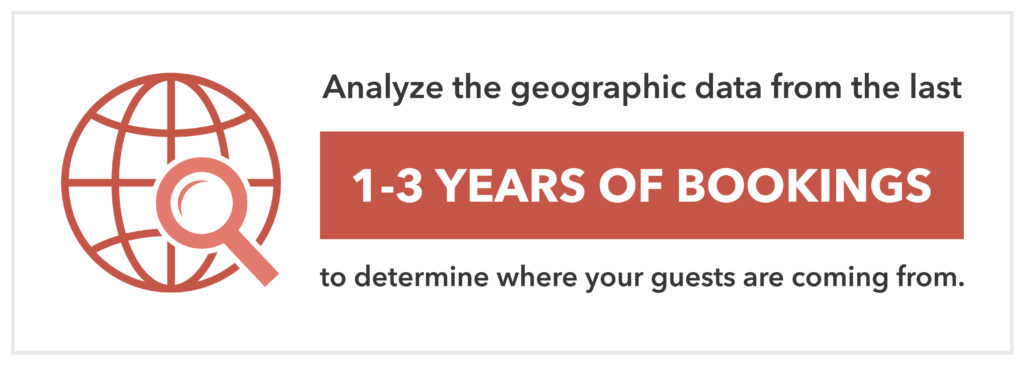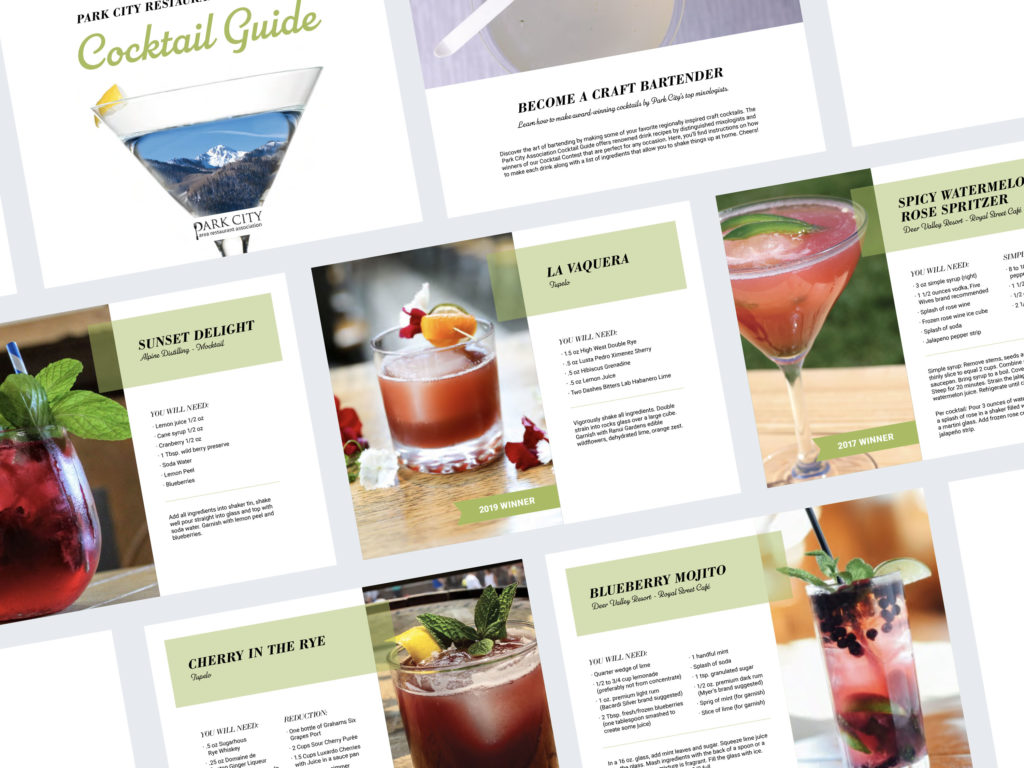Whether your goal is to expand your resort brand’s reach, attract more hotel guests, or maintain current customer loyalty, the importance of marketing in the hospitality industry cannot be understated. However, as there are many different sectors of the industry, such as accommodations, dining, excursions, travel, etc. it’s paramount to develop a customized marketing strategy that addresses your unique needs.
The first step is to ascertain your audience. Determining the demographics, needs, and wants of your hotel guests will allow you to craft a comprehensive marketing plan that speaks directly to future vacationers.
Hospitality Marketing 101
So, where should you start? Here we share five tips on how to determine your ideal audience and effectively leverage your products and services.
1. Get to Really Know Your Guests
In order to reach your audience, you must truly know who they are in order to grow your business. Above all, this means gathering in-depth and accurate information. For example, what are their vacation habits? How do they like to spend their time? What do they care about?
Establishing a clear understanding of who your guests are will help you determine the proper online channels to use. The right channels will better reach your potential guests and provide a more personalized marketing experience.
Persona research and analysis is a must if your hospitality digital marketing campaign is going to be useful.
- Use comprehensive data from resources like GWI and IBM Watson. These tools provide comprehensive data specific to your clientele.
- Take a deep dive into the demographics of past visitors who took advantage of all your hotel or resort had to offer; those who craved an experience that aligned with your service offerings. However, don’t get tunnel vision on who prospective visitors may be. After all, finding new customers is the goal too.
- Be cognizant of hidden cultural bias in your marketing. Making assumptions about any particular group or demographic, though unintentional, is far more common than many realize. In addition, it can affect everything from your research into potential markets to surveys you send your guests.
2. Get in Front of Your Guests Where They Live
Your best guests likely come from many geographic locations. To maximize your bookings, it is important to look at all potential cities and states where your visitors are and refine your message for each scenario. When thinking about geographic targeting for your paid advertising and placements, remember to get specific. 
- Analyze the geographic data from the last 1-3 years of bookings to determine where most of your guests are coming from. Saturate that market with your best ads, messages and offers.
- Identify geographies that mirror your demographic but haven’t been service due to competing attractions or venues. Could you extend a special offer to bring them in?
- When you have rooms and tickets to sell quickly, set your paid advertising targeting to cities, regions or countries where a quick trip is easy.
3. Understand When People Book Travel
Getting to know your best guests also means understanding when they book travel and vacations, after all. Keying in your advertising to the best months, days and times can help maximize your budgets and reach the best audience possible. Keep a few of these things in mind as you set up your promotion strategy timeline and advertising targeting.
- Use the data from your advertising platform and Google Analytics to determine what the best months, days and hours are for your ticket and bookings to-date
- Does your audience need some time to plan? Make sure you are promoting ticket sales, travel packages or special events with enough time for your guests to make the necessary accommodations.
- Consider what life events impact your audience and how those may change the timing of them booking travel. Do your guests book holiday travel as soon as school starts or a year in advance?
4. Determine the Investment You Will Make
An effective paid advertising strategy for hotels and resorts must have strong metrics and a good business case to ensure its success. Above all, your marketing team must understand the value and cost you are willing to spend to have a guest in your hotel room, in your theater, dining at your restaurant or purchasing your ski passes.
- Use analytics goal data to establish a clear cost per booking
- Use phone call tracking to track offline conversions through a call center or help desk
- Implement a strong testing plan to measure which specials are performing the best in ad copy
 Use retargeting campaigns to remarket to visitors who abandoned their reservations or shopping cart
Use retargeting campaigns to remarket to visitors who abandoned their reservations or shopping cart- Make sure that your website landing pages load in under 2s on mobile devices
5. Speak Directly to your Guests
Your message, imagery, tone and communication channels should all mirror the experience your guests will have at your resort, hotel or in your city. Start their experience with cohesive branding and messaging that speaks to what they expect from their travel or vacation experience.
- Guests expecting high-touch experiences will need polished marketing materials with great photography and clear messages in addition to a comprehensive list of highlights.
- Family-friendly events or hotels should use language and photography that allude to fun, variety and group activities.
- Develop multiple messages and designs that can speak to multiple personas but compliment each other and your resort experience.
Digital Marketing Services for the Hospitality Industry
Mad Fish Digital leads the industry in providing customized marketing strategies for the hospitality industry. Whether your business is local or national, our digital marketing services can support and boost your online presence and reach your intended audience. We invite you to get in touch today to learn more.

